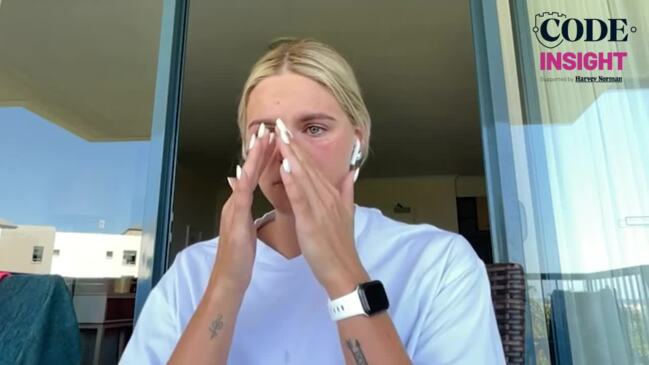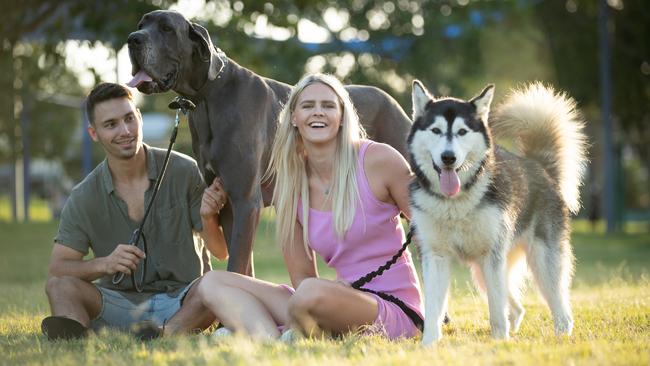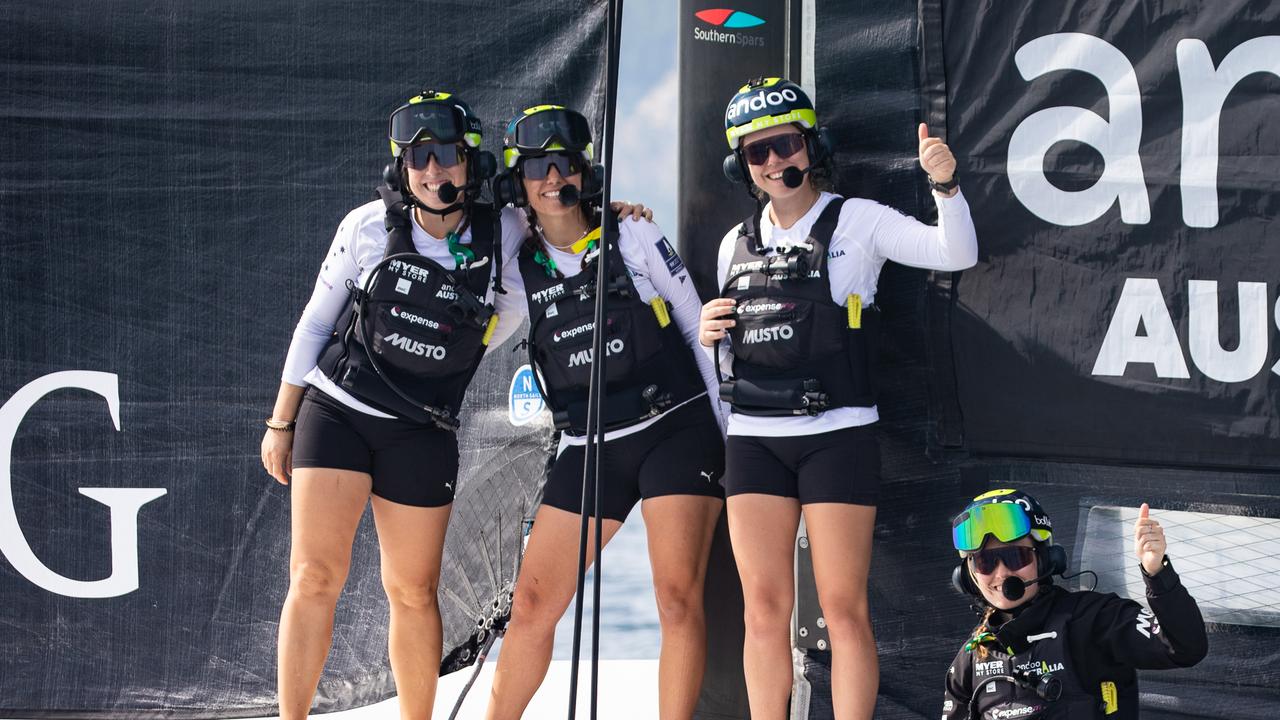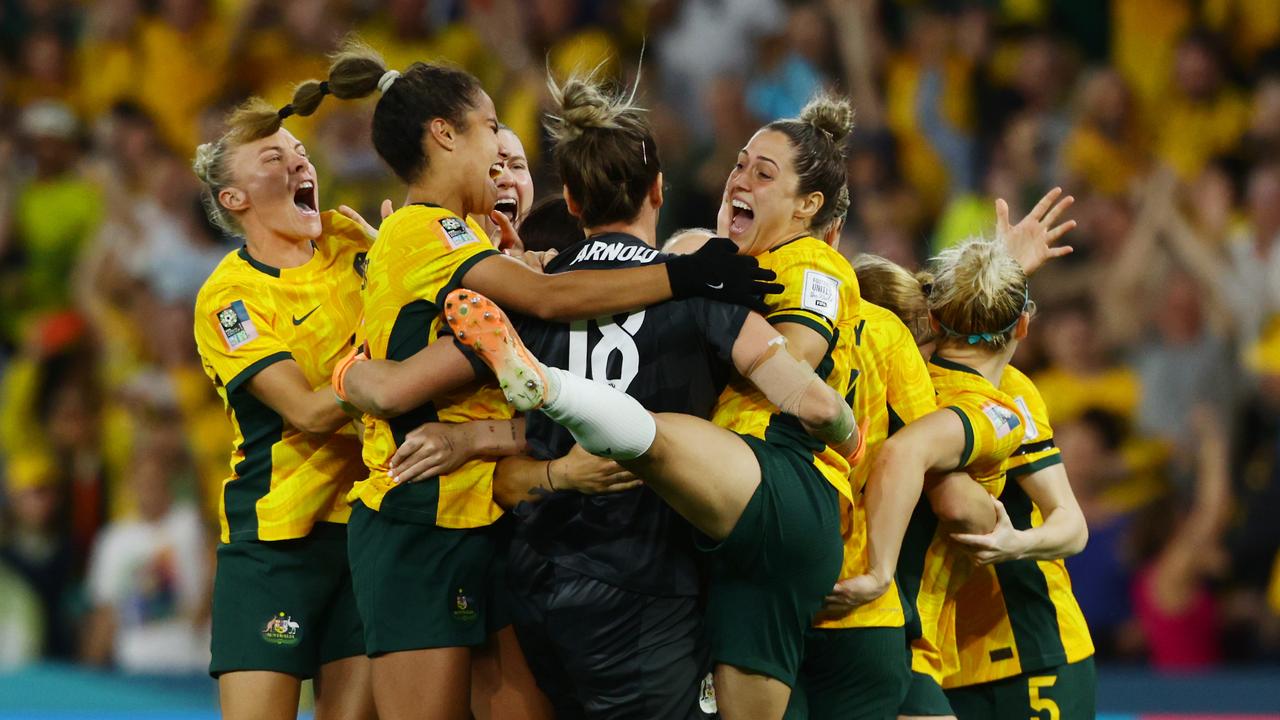Insight: Shayna Jack opens up on the horror mental health aftermath of her positive drug test
It was the phone call that changed Shayna Jack’s life forever, sending her into a spiral of trauma she is still dealing with today. Now she is bravely telling her story.

CODE Insight
Don't miss out on the headlines from CODE Insight. Followed categories will be added to My News.
Warning: This story may be triggering for readers suffering from mental health issues.
I’ve never actually said these words aloud before, or written them down, but at my lowest point in the battle to clear my name after I tested positive to a banned substance, I tried to take my own life.
I was home alone, I had my dogs there, my partner was at work – and I was done.
I was done with the process. I was done with life.
And boy, did it scare me.
Thankfully, my partner came home and he could see just what was going on.
I think that was the scariest day of my life and also my partner’s life.
Just months earlier I’d received a phone call that changed my life.
The shattering, baffling, call with Sports Integrity Australia that informed me they had found a banned substance in a urine sample collected a couple of weeks earlier, tipped me into a spiral of trauma and emotions I had never felt before and am still learning to deal with.
As I hit the floor following that call at the Australian swim team’s staging camp in Japan ahead of the 2019 world championships, my world fell apart.
I was now on a provisional suspension. I am not allowed to compete. I’m not allowed to train. I’m not allowed to be on tour. I am cut off.
I was just a scared young girl in the corner of a room watching her whole life being shattered and thinking that I was in a nightmare.
My family wasn’t there, no one was there.
The person that I trusted to be there for me at that moment was my coach, Dean Boxall, and when they called him into the room he thought someone in my family had died based on my emotions.

It was the worst moment of my life.
There’s been several – and all around this situation – but I still struggle with the trauma from it.
I actually didn’t unpack my suitcase when I got home.
Dean had said the same thing as I had when the result was revealed: “This is a mistake, we’re going to get through this.”
I couldn’t wait for my B sample to be tested so everything could be cleared up and I could get on a plane to rejoin my teammates and compete at the world championships.
When I got the news that the banned substance ligandrol had also been detected in my B sample, in what a court was later told was a “pharmacologically irrelevant” amount, I fell to the floor and cried because I knew my life was going to change.
I would have to go through a process that would test me and my resilience and my mental strength more than anything in my life before.
I eventually received a two-year ban after winning an appeal to the Court of Arbitration for Sport to have the usual four-year suspension cut in half, but had to endure a second CAS hearing after an 11th hour appeal from Sport Integrity Australia and World Anti-Doping Agency.
I’m usually a happy-go-lucky person.
It was rare for me to ever feel gloom settle in.
But while trying to clear my name, my pain was constant.
It was a ray of sunshine if I had one moment of happiness – they were rare.
I tapped into emotions I didn’t even know I had.
You don’t know what the next day entails. I didn’t know if I was going to get up, let alone swim again.

I now have such an insight into all levels of mental health – and the challenges people experience every day.
I was feeling constantly beaten down, I faced body image issues, in a way I felt disgust towards myself.
I thought I was to blame for being “sad” and that it was my fault rather than my body’s chemical reaction to what I was going through.
As an athlete, there are always going to be highs and lows – amazing big competitions and the low that follows; selection battles; injury and illness.
I do go into a state of depression after the thrill of a big meet and I can now recognise that and never blame myself for feeling those things
It’s so normal to face these mental health challenges.
TURNING POINT
When my partner came home and found me in the kitchen that fateful day, it was a turning point.
I felt like I was a burden to other people and just better off not being around.
Having to see people go through pain and believing I was the reason for that, just made me hurt more.
But I don’t give up.
I know it’s so hard for people to recognise that in their lowest moment – and I’m so grateful that I did.
But I recognised that this is not who I am. Whether I swim or not, whether I get through this (appeal) process or not, I don’t give up on life.

But I needed help. My partner made it very clear that I needed to go and speak to somebody because if I wasn’t going to use him and the people I had around me due to the guilt I felt for being a burden, then I was going to use professional help and understand why my mind was going into such toxic states.
So I started seeing a psychiatrist and it was the best thing that I ever did.
They helped me understand “why” during the process I never understood.
Why was I going through this process? Why was I not training? Why was I getting my Olympic dreams ripped away from me?
At least I could go to a psychiatrist and understand why I didn’t want to get out of bed each day. Why I was on the floor crying every second day.
I was found to have reactive depression. Because I am positive and I am a tough, determined female, every time I got knocked down I tried to get myself out of that hole, climb out and come up for a breath of fresh air.
You can’t keep climbing up. You can’t keep getting that breath of fresh air. And so I needed medical help.
It’s something I’d recommend to anyone.
You don’t need to wait for it to get to a point of being unhealthy before you speak to somebody.
I speak to a psychologist now every two weeks to ensure that I’m staying on top of my mental health.

THE COMEBACK
In a way, I didn’t want to come back to swimming.
I was angry towards the sport and how quickly everybody just dropped me after everything I’d sacrificed to be there from the age of 10.
But I came back for the people that supported me.
I came back to make sure that those who were against me didn’t win.
But also, for the people who helped me raise more than $50,000 to finish my legal fight; the people who turned up and cheered me on at the Queensland state titles when I was finally allowed to return to the sport at the end of 2021.
My way of showing my thanks was showing up to training every day when I wanted to give up.
You never know how many people support you and love you.
People don’t realise how much love and support they have around them.
We sometimes forget to stop and tell people how much we love them and support them and actually show them that love and support.
You can’t go through life without leaning on people.
If I have questions, I go to somebody else.
If I don’t know something or am clouded in my judgment, I go to somebody else.
There’s no shame in asking questions or asking for help.
I wouldn’t be here without other people. I couldn’t have done it alone.
Originally published as Insight: Shayna Jack opens up on the horror mental health aftermath of her positive drug test


